
If you suffer badly with allergies, then you will know the pain of trying to pull something out of storage, only to end up in a sneezing fit. Luckily, there are some great hypoallergenic storage tricks for allergy sufferers that can limit the risk.
The best news, they do not compromise good home organization or the safety of your stuff.
Here, professional cleaners share their top five hypoallergenic storage ideas for allergy-prone households to keep items safe from contaminants.
Hypoallergenic storage tricks
Improper household storage is one of the many surprising things making your allergies worse at home – here’s how to quickly rectify the storage errors triggering your allergies in your home and out.
1. Vacuum storage bags
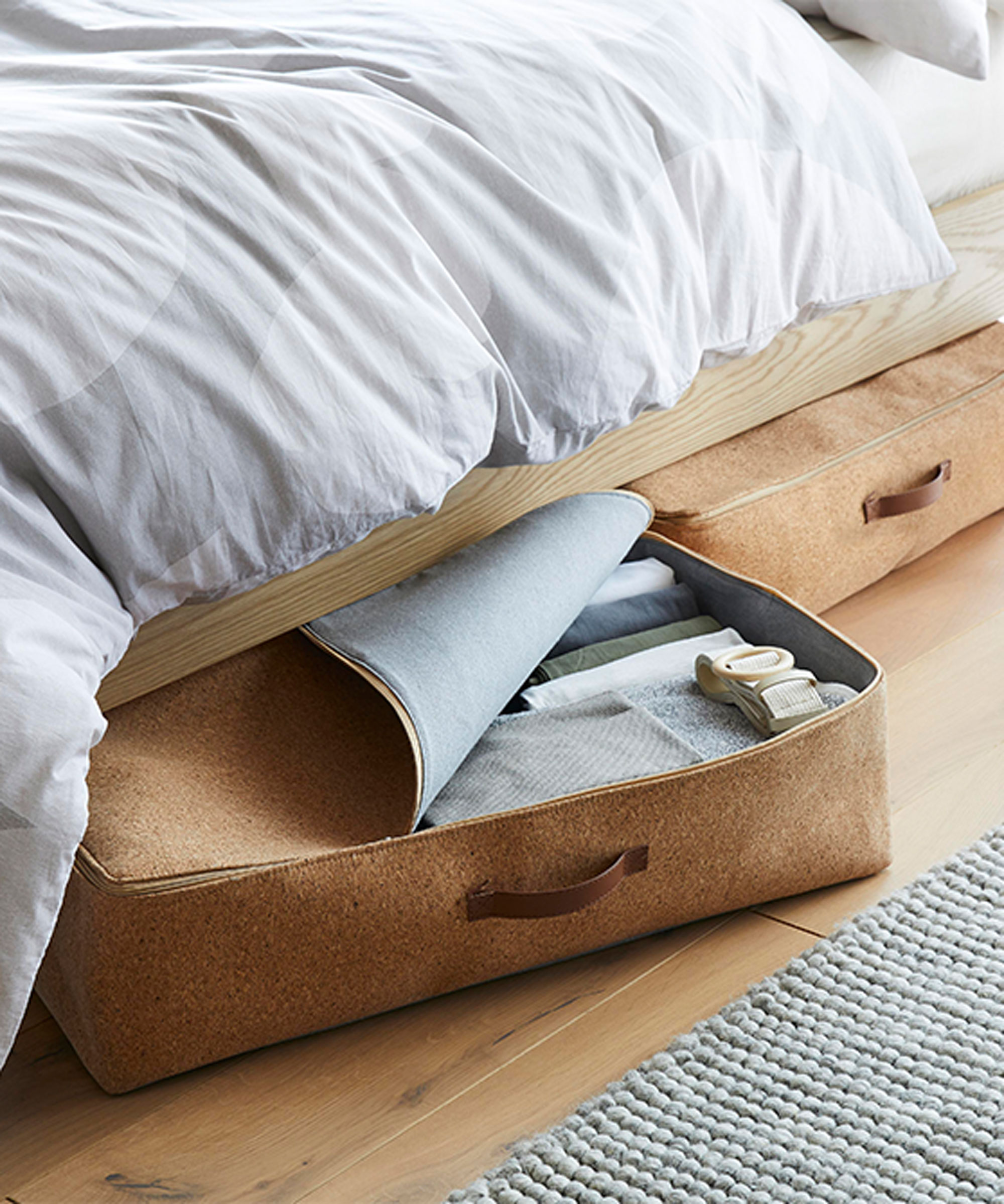
Large vacuum storage bags, available in packs of three at Target, are one of the best storage tools for keeping soft items free from allergens. Everything from bed linens, duvets, clothing, and towels can all be tucked away and sealed up, keeping them completely free of dust and mites – even if you stash them in traditionally dusty spots, such as in one of your underbed storage ideas.
The trick to this, however, is to ensure the items are completely clean before they go into storage, Max Wilson, Co-Founder at Pocket Storage, adds. He suggests, ‘Before you store your clothes, decorations, or old knick-knacks away, it’s important to make sure that they are properly cleaned. Dust, dirt, and moisture can lead to mold, odours, and damage over time, which can ruin your beloved items.
‘For example, if you’re packing away fabrics like clothes and shoes, wash them both before storing. Then, make sure everything is completely dry before packing away.'
2. Clean your storage regularly

On the subject of cleaning, it is essential to clean home storage regularly, too. Be it under your bed, the back of your closet, or your wall storage ideas, they all need regular dusting and disinfecting to keep them and your items free from allergens. Forgetting these spots is a dusting mistake making your home dirtier and your allergens worse.
To see the best hypoallergenic results from this cleaning tip, consider swapping to non-toxic cleaning products.
Hector Stewart, CEO at Baltimore HCS Home Cleaning Services, explains, ‘If you choose non-toxic choices, you'll be less likely to be exposed to volatile organic compounds (VOCs) and other toxins that are in many regular cleaners and can make asthma, skin irritation, and other problems worse. This is very important for homes with kids or pets, because those people are more likely to be sensitive to chemicals.
‘Many green cleaners get their light, pleasant smells from natural essential oils instead of strong perfumes. This means that they are better for your skin and respiratory system.’
The Attitude All-Purpose Cleaner, available at Walmart, is a fantastic example of this. EWG approved, these non-toxic cleaners are formulated without any harsh chemicals or unnatural fragrances for a cleaner, safer home.
3. Switch to glass in the kitchen
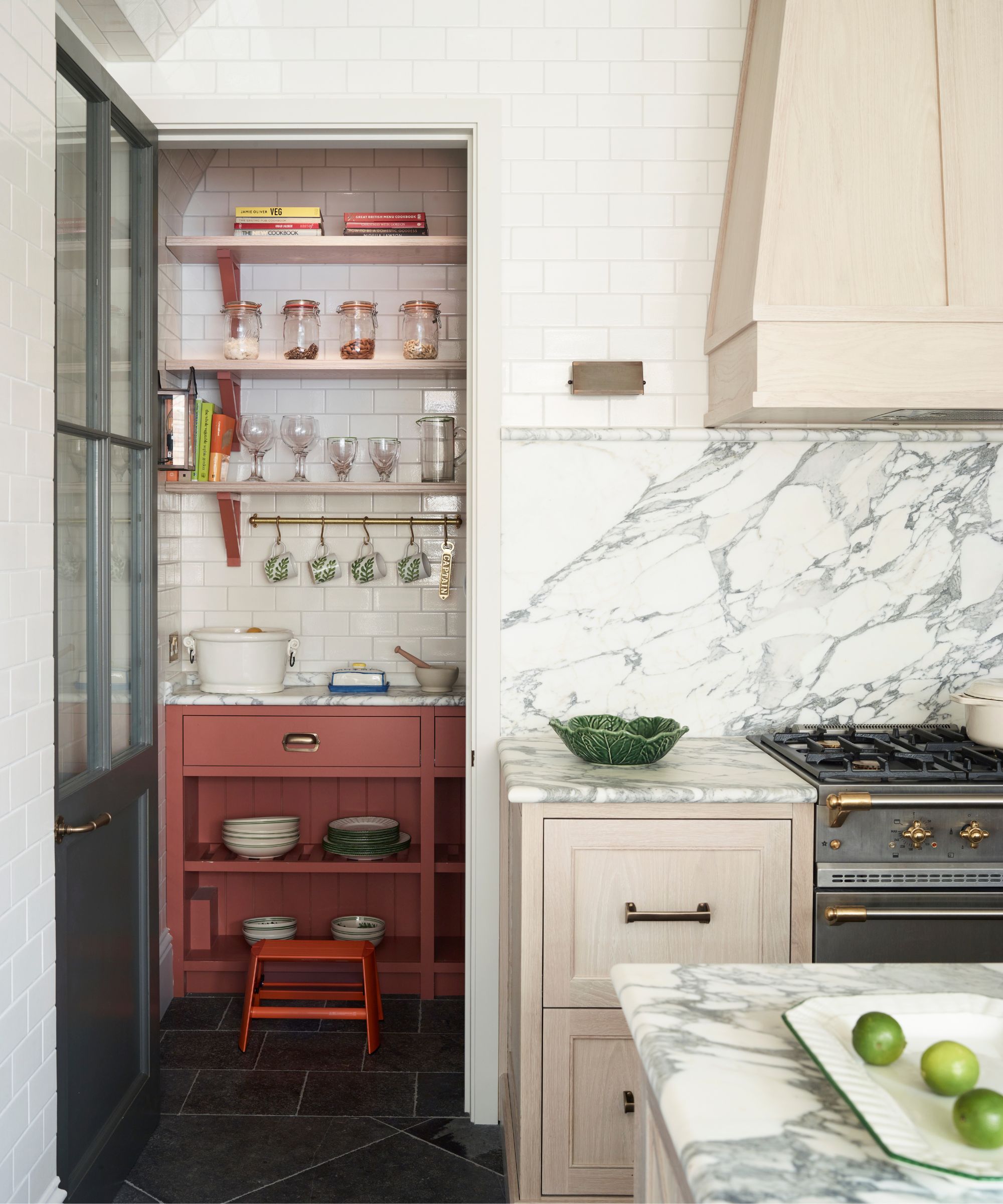
For food allergies, the best hypoallergenic approach is to switch to glass kitchen storage ideas over plastic, wood, and cardboard. Glass food storage ideas are not only BPA free, reducing your exposure to toxic chemicals and PFAs, but are easier to clean than their plastic counterparts, meaning they can be more thoroughly disinfected and reused without the risk of cross contamination in your pantry ideas.
To make switching over easier, you can buy a set of three vacuum-sealed glass food storage containers from The Container Store. They are also dishwasher safe, making them super simple to disinfect.
4. Use breathable cotton
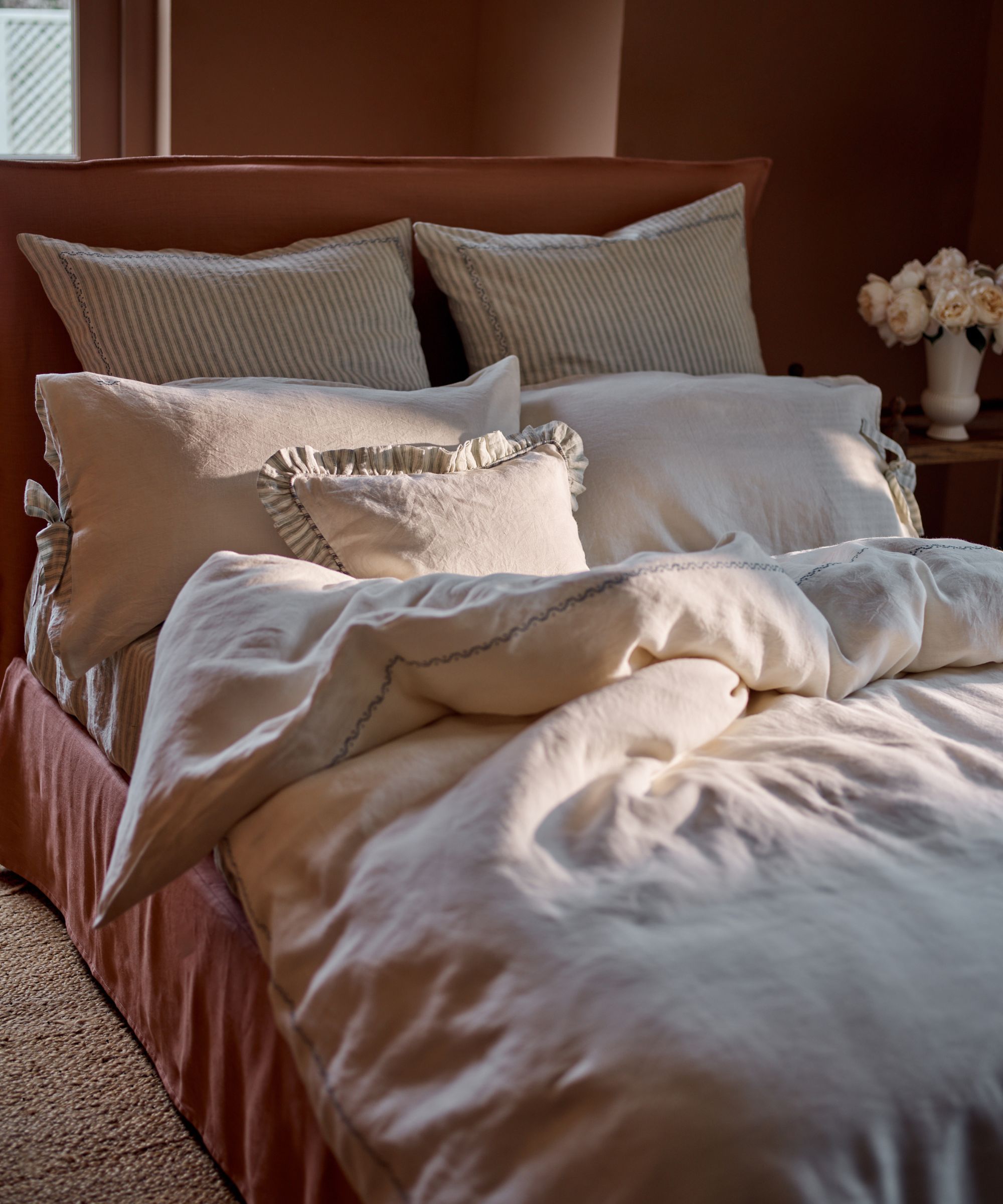
For those items that need to 'breathe' in storage, such as natural fibers and comforters, avoid using stuffy polyurethane bags and opt for zip-up cotton storage bags, such as these from The Container Store, instead.
Aminah Vierira, of InspireClean, explains that using cotton storage bags that allow items to breathe reduces the risk of dust mites, while protecting them from dust and moths.
When using cotton, it is important to keep the area you are storing it in clean to prevent dust from settling on top of the bags or the items being damaged by humidity and moisture.
A dehumidifier, such as the ToLife 95 oz Dehumidifier from Amazon, can help with this, while a hydrometer from Walmart can help you keep tabs on your storage moisture levels year-round.
Having one of the best air purifiers with a HEPA filter will remove dust, dander, pollen and any impurities in the air.
5. Hose outdoor items before storing them

The same allergen advice applies to your backyard storage ideas, too. As Jeremy Yamaguchi, CEO of Cabana says, ‘If you are someone who suffers from allergies to things like pollen or grass, one storage trick I have specifically for outdoor items is to hose things down before storing them and to store them in air-tight sealed containers [available at Walmart].
‘For example, when putting your pool floaties away, to make sure any pollen or other particles are off of them, give them a rinse and dry them off before deflating them and putting them in a container that is completely sealed off from the outside air.
‘Pollen and other particles can still get into your garage or shed, so using these kinds of containers can really help keep them more clean.’
Hypoallergenic storage essentials
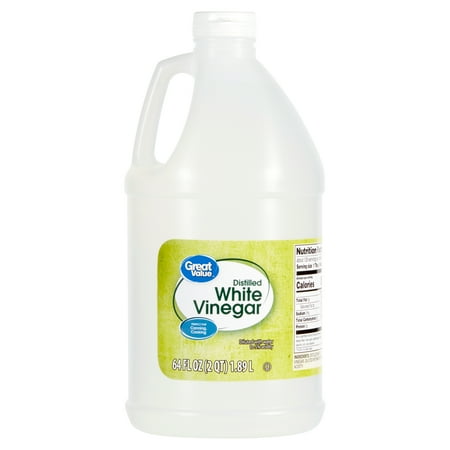
White vinegar is a great non-toxic solution to mold in your home storage without the use of harsh chemicals that could also affect your allergies.
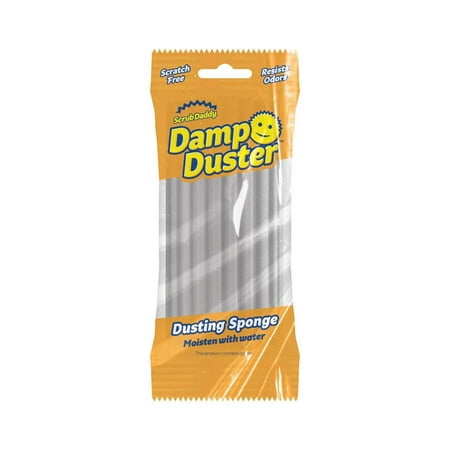
The Damp Duster is great for allergy sufferers as it removes all dust, pollen, pet hair, and more, affordable, reusable, and conveniently sized, and, better yet, is easy to clean – simply wash the sponge with water to remove dust and grime and reuse.
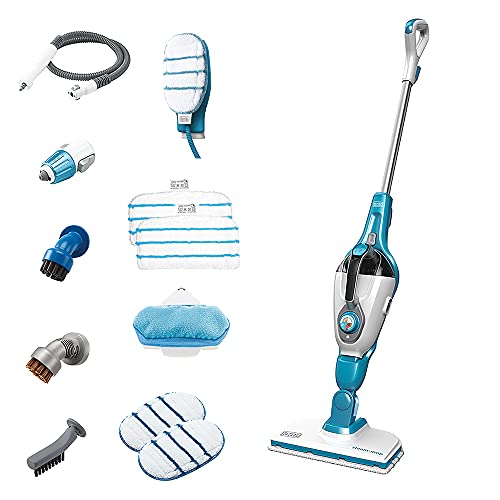
Steam mops are perfect for killing dust mites (a common household allergen) without the need for harsh chemicals. All you need is plain water and an outlet.
While your storage is a good place to start when cutting allergens out of your home, you'll also benefit from some specific cleaning tips for allergy sufferers to help remove dust and pollen efficiently.







